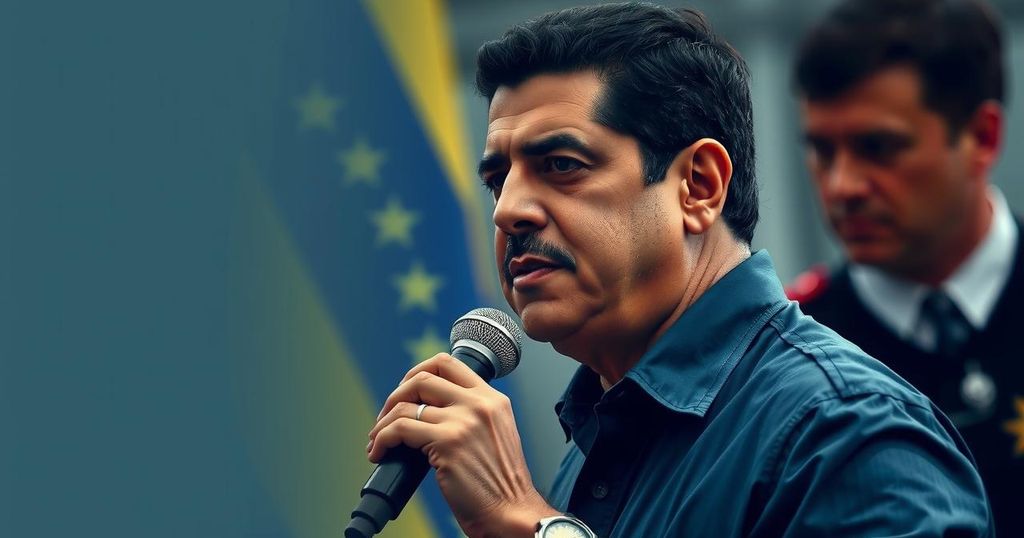The U.S. implemented sanctions on 21 Maduro allies for post-election repression, alongside recognizing opposition candidate Edmundo González as ‘president-elect’. Despite claims of electoral success by Maduro, concerns over human rights abuses persist, complicating the political landscape.
The United States has extended its sanctions regime by targeting 21 additional associates of President Nicolás Maduro. These measures, implemented by the Department of the Treasury, cite allegations of repression against Venezuelans following the contentious presidential election held in July. Among those designated are several high-ranking officials, including the head of the corrections agency and the director of an intelligence service, compounding a series of prior sanctions against Maduro’s cadre who are implicated in human rights violations and electoral fraud.
The Biden administration recently acknowledged Edmundo González, representing Venezuelan opposition factions, as the nation’s “president-elect”. This statement came alongside the announcement of visa restrictions against additional individuals accused of repressing dissent in Venezuela after the elections. While President Maduro remains defiant, claiming electoral victory without substantiating evidence, González has fled to Spain amid threats of arrest linked to investigations surrounding the electoral process.
In September, sanctions were also levied against 16 of Maduro’s allies for their involvement in corrupt electoral practices and human rights abuses. However, the effectiveness of these sanctions remains questionable, as those previously sanctioned maintain considerable power within the Venezuelan government. Concurrently, Venezuelan lawmakers are pursuing legislation that would categorize economic sanctions as crimes against humanity—highlighting the ongoing legislative resistance to U.S. measures affecting the Maduro regime.
The sanctions imposed by the United States are in response to the deteriorating political situation in Venezuela, particularly in light of the July elections that have been widely regarded as fraudulent. The oppressive actions against dissenters and opposition figures, including the case of Edmundo González who claims a significant electoral victory but is now in exile, exemplify the ongoing political turmoil. Previous U.S. sanctions have failed to weaken Maduro’s hold on power, and the proposed legislation in Venezuela signals a continuing struggle against international pressures.
In summary, the United States has intensified its sanctions targeting President Nicolás Maduro’s administration by citing human rights abuses and electoral fraud. While the Biden administration recognizes an opposition figure as the legitimate president, Maduro’s regime continues to dismiss these allegations. The ineffectiveness of previous sanctions and the Venezuelan government’s counteractions illustrate the complexities of international diplomacy in addressing electoral integrity and human rights in Venezuela.
Original Source: abcnews.go.com






